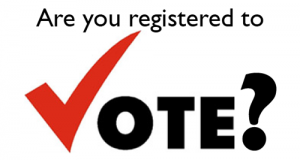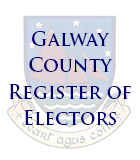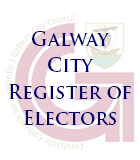Copy of Speech from the official launch of : Finding Your Way With ADHD: Struggles, Supports and Solutions.
——————————————————————————————–
12th September 2016
Launch of Research Study by Catherine Connolly TD entitled:
‘Finding Your Way With ADHD, Struggles, Supports and Solutions’ By Dr Pádraig MacNeela
I am delighted to be back in NUIG and to be part of an occasion which sees the publication of the results of a collaborative study between the community and the University and more specifically, the Institute for Lifecourse and Society.
I consider it a privilege to have been asked to launch this very interesting piece of qualitative research, the title of which succinctly encapsulates the lifelong journey of all the 19 participants.
As I understand it, the study results provide a novel perspective on the experience of ADHD among Adults from both the Republic of Ireland and Northern Ireland.
The age range of the 19 participants was between 18 to 53 years and included both men and women from a diverse range of occupational backgrounds.
Significantly, the qualitative methodology of the research allowed each participant to tell his/her story and their unique experience of ADHD which has extended the breadth and depth of our understanding of Adult ADHD in Ireland which of course was the primary purpose of the study.
I must confess at this point to having a certain aversion-perhaps on reflection aversion is too strong a word- but certainly I have never been comfortable with the use of or the imposition of labels –indeed my experience to date on every level, both personally and professionally–is that labels of one sort or another have been used both within and without psychiatric/psychological circles to define the person in terms of the label with the most appalling, detrimental, restrictive and self serving results, to put it mildly.
This research however has forced me to question this long standing viewpoint/opinion and to begin to look at the possible and potential positive sides to a specific diagnosis/label of ADHD and more specifically to its transformative effect when used appropriately, in context and with appropriate supports.
Indeed, the research results show that notwithstanding that the label itself attracted some stigmatizing associations, from the participants point of view it was clearly easier to work with, giving those with the diagnosis a clearer understanding of their difficulties than the negative self-labeling that they themselves or others such as peers/parents/teachers had engaged in -such s ‘stupid’, ‘bad’ ‘bold’ or ‘lazy’.
In this regard, the description given by each participant of their unique journey in coming to a clearer understanding of their selves and the ADHD component of their lives and the impact on their self understanding and development of a diagnosis or lack of diagnosis- cries out to be read, heard, understood and acted upon.
Each unique storey contributes to our understanding of ADHD and more importantly points the way forward and positively to what is required.
Most importantly, the stories highlight in a most acute way that it is/was the ill-prepared nature of the systems, supports and structures relevant to ADHD- that is/was the critical issue rather than the condition itself.
In this regard and most regrettably, the experience of ADHD for the adults in this study when seen through the prism of- contacts with health care professionals, difficulties in obtaining a diagnosis and the use of medication- was one that undermined personal authority and the person’s ability to maximize his/her potential in life
Similarly, the participants’ negative experience at school including both their early and later educational experience as well as their employment was one that was not life enhancing.
More specifically, the characteristics of ADHD were a fundamental challenge for individuals in conventional school, higher education systems and work settings where linear thinking and rote learning were favored.
Yet on coming to terms with the condition as an underlying cause, the ADHD label provided the opportunity for a rich and insightful insight on the self and others and a basis for effective adaptation with appropriate coping strategies.
Most significantly, ADHD characteristics were not inherently disabling. Indeed they brought out original and innovative perspectives.
From all perspectives therefore this is a significant piece of research which not only gives authenticity to the real experience of the participants but clearly highlights what can and should be done if we are seriously committed as a civilized society to equality of opportunity for all.
In conclusion, I am delighted to officially launch the results/report of this research and I extend a very warm congratulations to Dr Pádraig MacNeela and his team and also the 19 people who participated in the study and who showed both courage and commitment in coming to terms with ADHD.
Catherine Connolly TD



